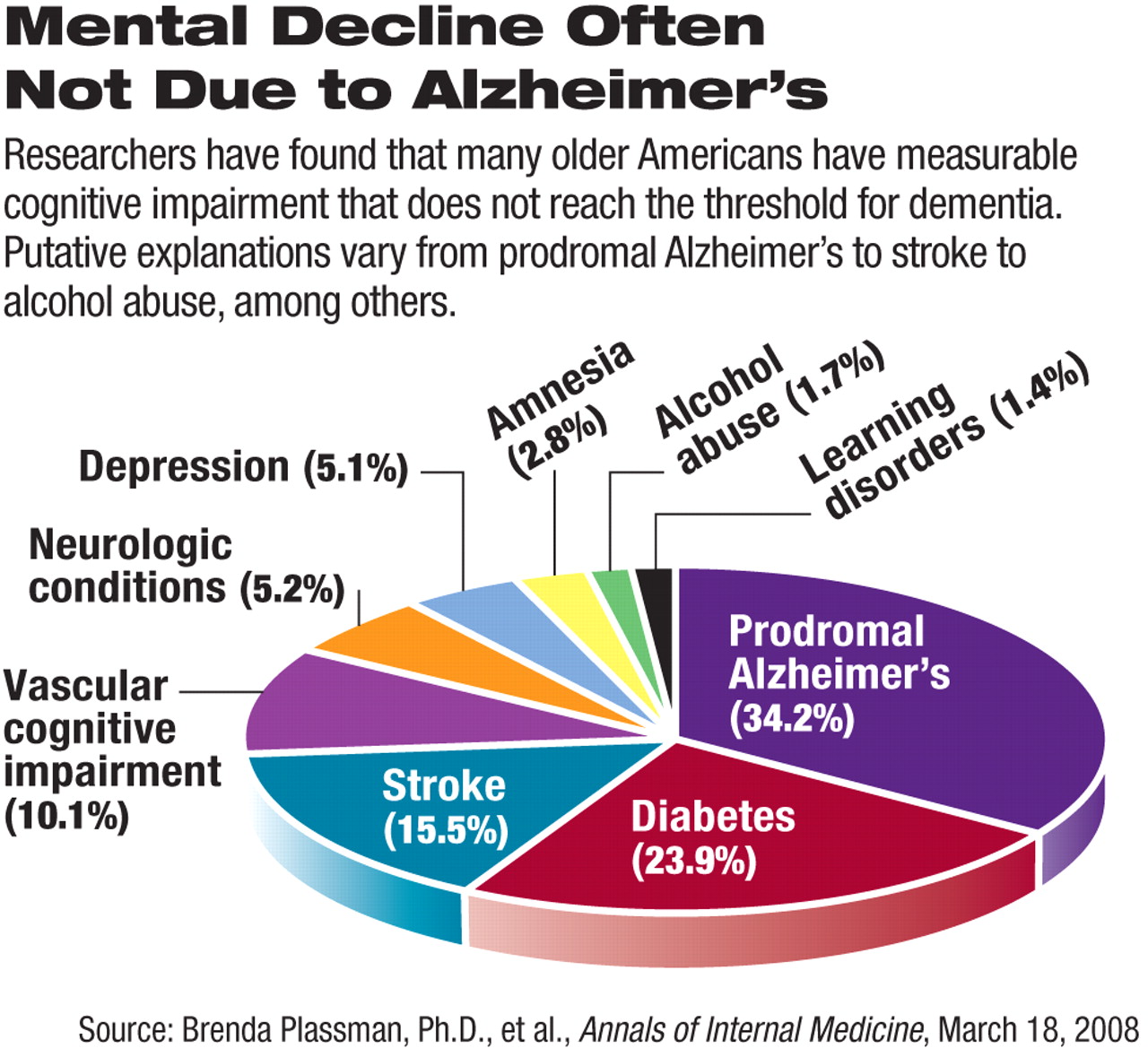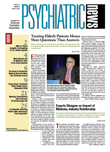Not long ago, “Frank,” a 75-year-old retired physician, complained that his mind was not as sharp as it used to be. Once he started exercising more and brought his high blood pressure under control, however, he reported that he felt like his old self again.
Frank appears to be one of those Americans who experience cognitive impairment without dementia—that is, impairment that does not reach the threshold for dementia and may or may not constitute pre-dementia. But how many other Americans have this condition as well?
Estimates from a few regional American and Canadian samples have reported prevalence rates between 17 percent and 23 percent. Some European studies have found prevalence rates ranging from 21 percent to 27 percent. And now a new American study designed to answer the question—and the first one based on a nationally representative sample—has found a prevalence rate of 22 percent.
“Cognitive impairment without dementia affects a very large segment of the elderly population,” Plassman and her colleagues concluded in their report, which was published in the March 18 Annals of Internal Medicine.
In fact, they estimated that the number of individuals with cognitive impairment without dementia is about 70 percent higher than that of individuals with dementia.
This new study, conducted by Brenda Plassman, Ph.D., an associate research professor of medical psychology at Duke University, and colleagues included 856 persons aged 71 or older drawn from a nationally representative sample. Subjects provided a clinical and medical history, were examined neurologically, and underwent neuropsychological tests.
The researchers then analyzed the results to determine how many of the subjects had normal cognition, how many had cognitive impairment that did not reach the threshold for dementia, and how many had dementia. Out of the 856 subjects, 241 had impaired cognition without dementia. Population sampling rates were derived to adjust for at least some of the potential bias due to nonresponse among subjects and attrition.
The researchers then zeroed in only on the subjects with cognitive impairment without dementia to better understand the causes for the impairment (see chart).
The investigators used their findings about the subjects with impaired cognition without dementia to compute a national prevalence estimate for the condition. They found that 22 percent of Americans aged 70 or older—that is, 5.4 million as of 2002—had it. As Plassman told Psychiatric News, “The finding that 22 percent over age 70 have mild cognitive problems is sobering—and clearly illustrates the importance of this problem in late life.”
The results have some practical implications for older Americans, the researchers believe. For example, eating better, getting more exercise, lowering cholesterol, and lowering blood pressure—as Frank did—may not only help stave off diabetes, stroke, and heart disease, but also mental decline, they speculated. Furthermore, since a large number of older Americans have some cognitive deficit, their families should try to help safeguard them from consumer fraud schemes, which especially target that age group.
The findings also have some important clinical implications, the researchers noted. For instance, since a large number of seniors seem to have mild cognitive problems, their physicians might do well to write down instructions for them, not just give instructions orally. Still another implication, Plassman pointed out to Psychiatric News, is that many seniors may be well aware of their cognitive deficits and eager to discuss them with their psychiatrist or primary care doctor.
The study was funded by the National Institute on Aging.
An abstract of “Prevalence of Cognitive Impairment Without Dementia in the United States” is posted at<www.annals.org/cgi/content/abstract/148/6/427>.▪

